Volume 3, Issue 6: At Least That’s What You Said
"You're irresistible when you get mad. Isn't it sad?"
After surveying a bunch of you, I’ve decided to run the CV Stories just once a week, on Wednesdays. If you have differing thoughts, please let me know. Otherwise, send me your stories at williamfleitch@yahoo.com.
Even as a kid, I was obsessed with the newspaper. I read every page of the Mattoon Journal-Gazette cover to cover, and there were no bigger classification of celebrity, other than players for the St. Louis Cardinals, than bylines in the Mattoon newspaper. Carl Walworth, the paper’s editor, went to our church, and I would catch myself staring at the back of his head throughout the whole service. I still have copies of the Mattoon paper from the day the Cardinals won the 1982 World Series, the day the Challenger exploded and the day Bill Clinton was elected. And somewhere in my parents’ house there’s a cutout of every mention of our Little League team.
I loved our newspaper so much that even when I went to college, I spent half my time there writing for them, movie reviews and opinion columns for $10 bucks a pop. I used to write my pieces, print them out at the undergraduate library and fax them to the Mattoon office. I always felt bad for the poor sap who had to type the whole thing out in the plate.
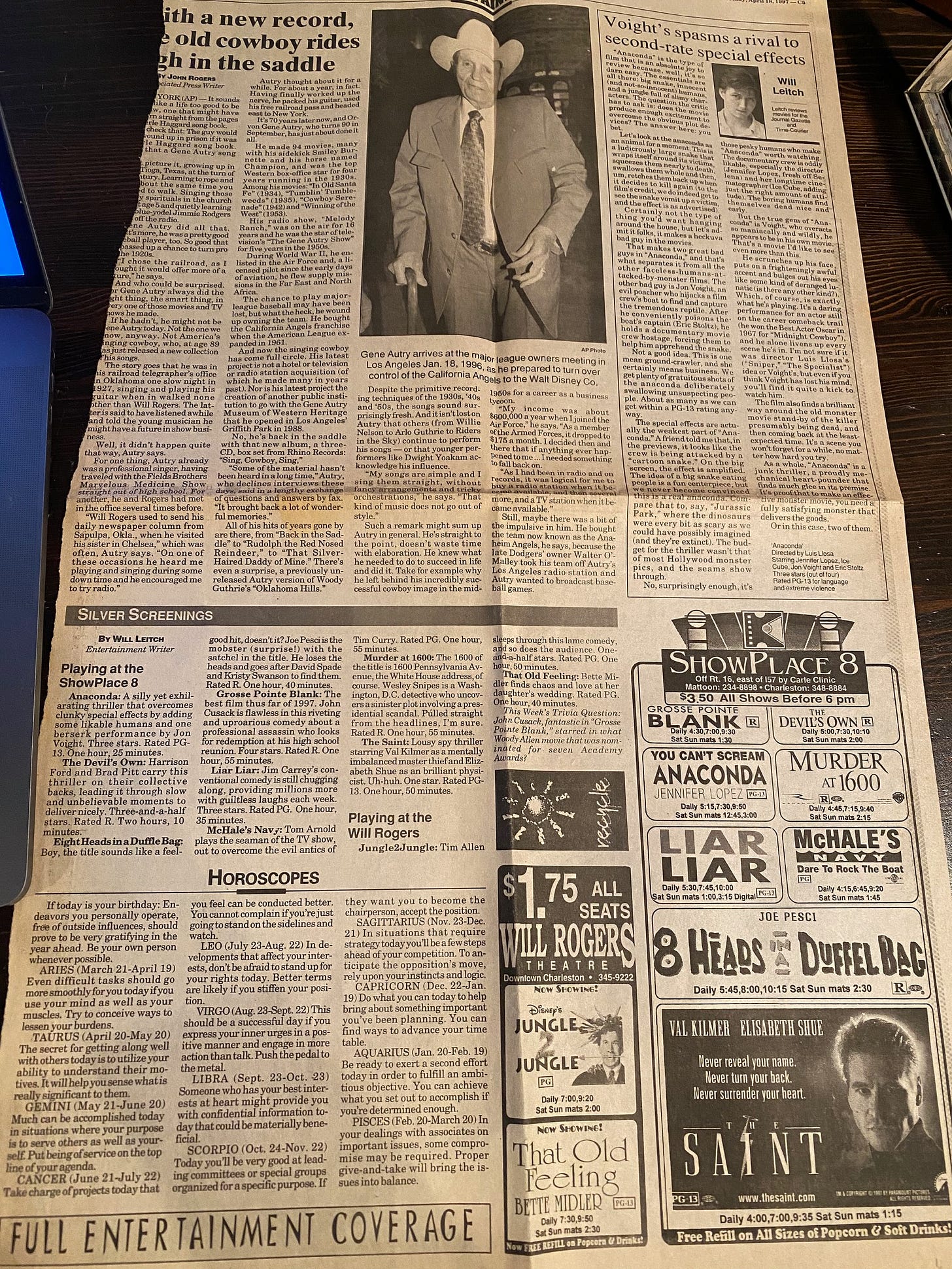
Obsessing over the newspaper so young sentenced me to two lifelong afflictions. The first is a compulsive addition to bylines; Roger Ebert once wrote that he found the three most beautiful words in the English language to be “by Roger Ebert,” and, as usual, he said it exactly right. The second was a ravenous addiction to news. I was the kid who stayed up all night on Election Night, jotting down electoral college counts in his notebook, who subscribed to The New Yorker and The New Republic and New York even when he was a broke and unemployed and living in a dark Brooklyn apartment with a leaky roof and floors that made a mysterious crunch when you walked across them. (I used to read the New York Daily News cover-to-cover on my daily subway commute from Inwood to Chelsea.) And when the Internet took over, my morning newspaper and evening magazine reading routines went 24-7. I had access to limitless fonts of information, whenever I wanted it, simply by taking my phone out of my pocket. News barely had time to happen before I learned about it.
Journalism, and news, opened up the world to me. They introduced a Mattoon kid to a planet he’d have had no access to otherwise. I’ve been a news hound my entire life. I always want to know what’s going on. I always want to know how much I’m missing.
Until … this pandemic hit. And now, I’ve discovered for the first time: The best way I know how to make it through this is trying not to know what’s going on at all.
**************************
It was not like this for the first couple of weeks. I’d been hearing about the coronavirus for a month or so, reading scary stories from China, listening to the Times health reporter on The Daily, noting how it was messing with sports leagues in Asia and Europe already. I even wrote about it on March 9, making the argument that American sports leagues were dragging their feet in response to the virus, though I have to now admit I’m not sure I was entirely taking it seriously myself, at least not in any way that affected my daily life. Like many people, it didn’t truly hit home for me until that Wednesday night, a night I think a lot of people consider the true start of this current period, when Trump made that sniffling, vague, error-ridden, downright terrifying national address, which was followed immediately by the news that Tom Hanks and Rita Wilson had tested positive for the disease and that the NBA was suspending its season because Rudy Gobert, who had just touched everybody’s microphones for crissakes, was positive as well. That night, still on vacation in Florida, with everyone else in the house long asleep, I stayed up all night, staring at the television, then back at my phone, then back up at my television, then back down at the phone. I repeated this process every night for the next two weeks, and how could I not? I read every word about the world I could find when I wasn’t living through one of the most monumental periods in American history. Now? During the boom time? I had to know everything. I could not get enough.
I’m not sure when I began to realize this was harmful to me and the people stuck in this house with me. It might have been when I found myself on the front porch drinking my [number undetermined] class of bourbon still refreshing Twitter at 3 in the morning, mumbling to myself. It might have been when I snapped at a relative who sent me one of those Medium pieces written by some tech person who’s convinced we’re making too big of a deal out of this. It might have been when the children tried to start a pillow fight with me but I was so engrossed by a Nate Silver THREAD about modeling and spread and infection rates and Sweden’s herd immunity fallacy that I didn’t even look up at them. It was probably a combination of all of them.
The most disorienting part of this all of this is that it affects everything. It affects your job, your family, your friends, your financial situation, your loved ones, your enemies, your social escapes, your dirty secrets, your hopes, your dreams, your fears, all of it. There isn’t a single aspect of our lives that isn’t about the coronavirus. And thus this leaves only so much bandwidth. The learned helplessness we’ve all felt over the last four years, that sense that it doesn’t matter what the truth is, that nothing matters anyway, that helplessness has always felt separate from our actual, daily lives. We may be affected by the world—we are affected—but it is not so direct. It can take a while for what happens there to meet us here. But everything is connected, immediately, now. The story that makes us feel so helpless is the exact one that’s causing my kids to be home all day, and my friends to get laid off, and trips to the grocery store to feel like a war zone. The panic and fright are the same. There is no escape from it. There is no place to hide.
And all the news is bad. Some news, some recent news, can feel like an improvement, an adjustment from the worst-case scenario, all the sacrifices everyone has been making over the last three weeks having an effect. But even those slivers of good news come with chasers, whether it’s that there’s no second-wave plan, or that there still isn’t any testing, or that the grifters are now claiming none of this was necessary (correct analogy here), or that there still may not be any sports until next year, or all of it. It is impossible not to go down the rabbit hole. All roads seem to lead to despair. Someone’s always going to be suffering somewhere. And I cannot do a goddamned thing about it.
There is a point when Staying Informed begins to lose its utility, when it’s making things more difficult to deal with rather than easier, and I believe I am about to reach it. Every day is its own unique battle, and it requires specific focus and mental fortitude to get through it. And absorbing all this bad news is eroding the energy I need to fulfill the obligations I have to the people in this house. For the first time, knowledge doesn’t feel like power. It feels like it’s draining power.
I have many friends who have been in rehab or AA, and I have found it oddly comforting to talk to them during this period. Their overarching philosophy, that you cannot focus on what you cannot control and must instead simply get yourself through each day until someday you look back and say, “wow, that’s a lot of days I just made it through” … it seems the exact right way to handle this. There is nothing I can do about the horrible daily press conferences, or the idiots in charge, or how little we still seem to know about what this virus is capable of. There is nothing I can do about how ill-prepared we seem for what comes after this first wave. There is nothing I can do about the fact that the President of the United States thinks you kill viruses with antibiotics. Those things are outside of my control.
So I have to let them go. I just worry about what’s in front of me. Is there work for me to do that I will get paid for, work that hopefully will provide some information, entertainment and solace for those who consume it? I’ll take care of that. Can I keep my family safe and quarantined away from this sickness? I’ll take care of that. Have I been given the opportunity to spend time with the people closest to me? I’ll take care of that.
One of my favorite books growing up was Stephen King’s/Richard Bachman’s The Long Walk, about a contest in the future in which 100 competitors just walk, as long as they can, and if you stop, you are killed. The walk itself of course becomes a heavy-handed but quite effective metaphor for life itself. “You just gotta keep pickin’ ‘em up and settin’ ‘em down,” one character says. That’s how this feels. You just put one foot in front of the other. You just pick ‘em up and set ‘em down, and you keep doing that until it is over. I have no power over anything but that. Occupying my mind with anything outside of that basic fact is energy wasted. David Mamet once wrote that “worrying is interest paid on a debt that never comes.” Worrying is burning capital I can’t afford to lose right now.

So I’ve stopped. I do a morning check-in on the news (and do a morning run to The Daily and the Fivethirtyeight podcast), and I do one more before I go to bed. I don’t watch the press conferences. I don’t scroll through Twitter all day. I don’t refresh the Times or the Washington Post. I am sure I am missing much useful information, produced by brave journalists during a time of unprecedented crisis and shameful attacks by those whose misdeeds it is their jobs to expose. I am not devaluing journalism. It is more important than ever. It remains my passion. And I am supporting the cause: I have in fact subscribed to more publications, from The Atlantic to the Athens Banner-Herald, during this pandemic than I had before. The industry has never needed my help, and all our help, more than it does right now.
But I need a break. This news consumer is consumed out. I just gotta put one foot in front of the other here. Eventually we’re going to get through this. There is no way around it, or over it, or under it. The only route is straight ahead, pick ‘em up, set ‘em down. I’ll use whatever I can to help me, and us, make it through. I have no choice but to discard the rest; it’s the only thing I’ve found that works. It turns out the old baseball cliche holds: You just gotta play one game at a time. I think I read that in a newspaper once.
Here is a numerical breakdown of all the things I wrote this week, in order of what I believe to be their quality.
How to Fix Joe Biden’s Bad Podcast, New York. This replaced my sports column this week, just because I couldn’t write another “it’s super hard to do sports in a biodome!” piece and because it was a good idea. I’m not sure loved all the people who used it as cudgel against Biden for their own purposes, though. The advice was heartfelt, and sent with only the best intentions.
Baseball Year in Review: 1995, MLB.com. Very underrated baseball season, though people down in Georgia sure do appreciate it.
This Week in Genre History: Land of 1,000 Corpses, SYFY Wire. A new semi-regular feature for SYFY, and I enjoyed writing about Rob Zombie, auteur.
Better Know a Baseball Player: Jason Varitek, MLB.com. Is he the one likable Red Sox? He is, right?
What to Watch Instead: No Time to Die, Vulture. In an alternate universe, we’re all watching the last Daniel Craig James Bond movie this weekend.
The Thirty: Every Team’s Best Player of the ‘80s, MLB.com. We’re doing this for the ‘90s and aughts over the next two weeks.
PODCASTS
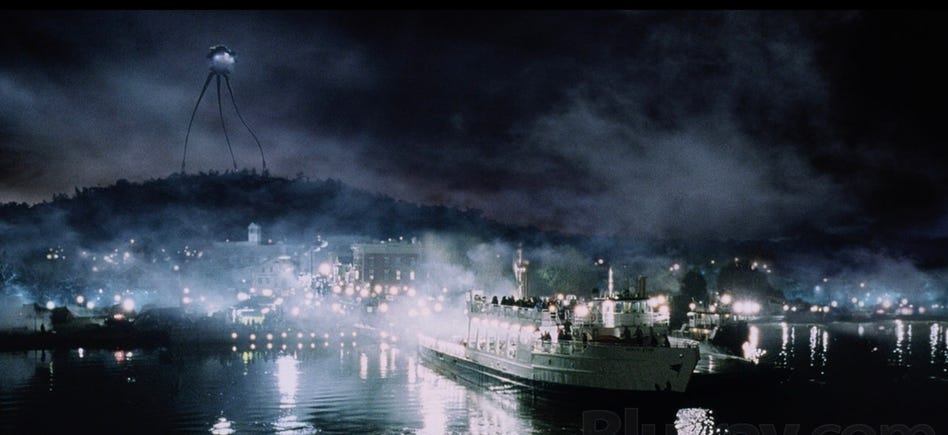
Grierson & Leitch, we looked back at the movie year of 2003, and also “Tucker: A Man and His Dream” and “Passion Fish.”
Seeing Red, no show this week
Waitin' Since Last Saturday, I did a YouTube Live, whatever that is.
LAUGH THAT I NEEDED THIS WEEK
Grierson’s theory that the reason everyone still streams “The Office” and “Friends” and “Parks and Recreation” all the time rather than “30 Rock” is because everyone watches Netflix and no one watches Hulu. This strikes me as anecdotally true. It’s a shame, because man “30 Rock” is great. As the very least: Matt Damon has never been funnier. “That’s what I every day: Not hit birds. Where’s my ticket to the Grammys?”
MAILBAG
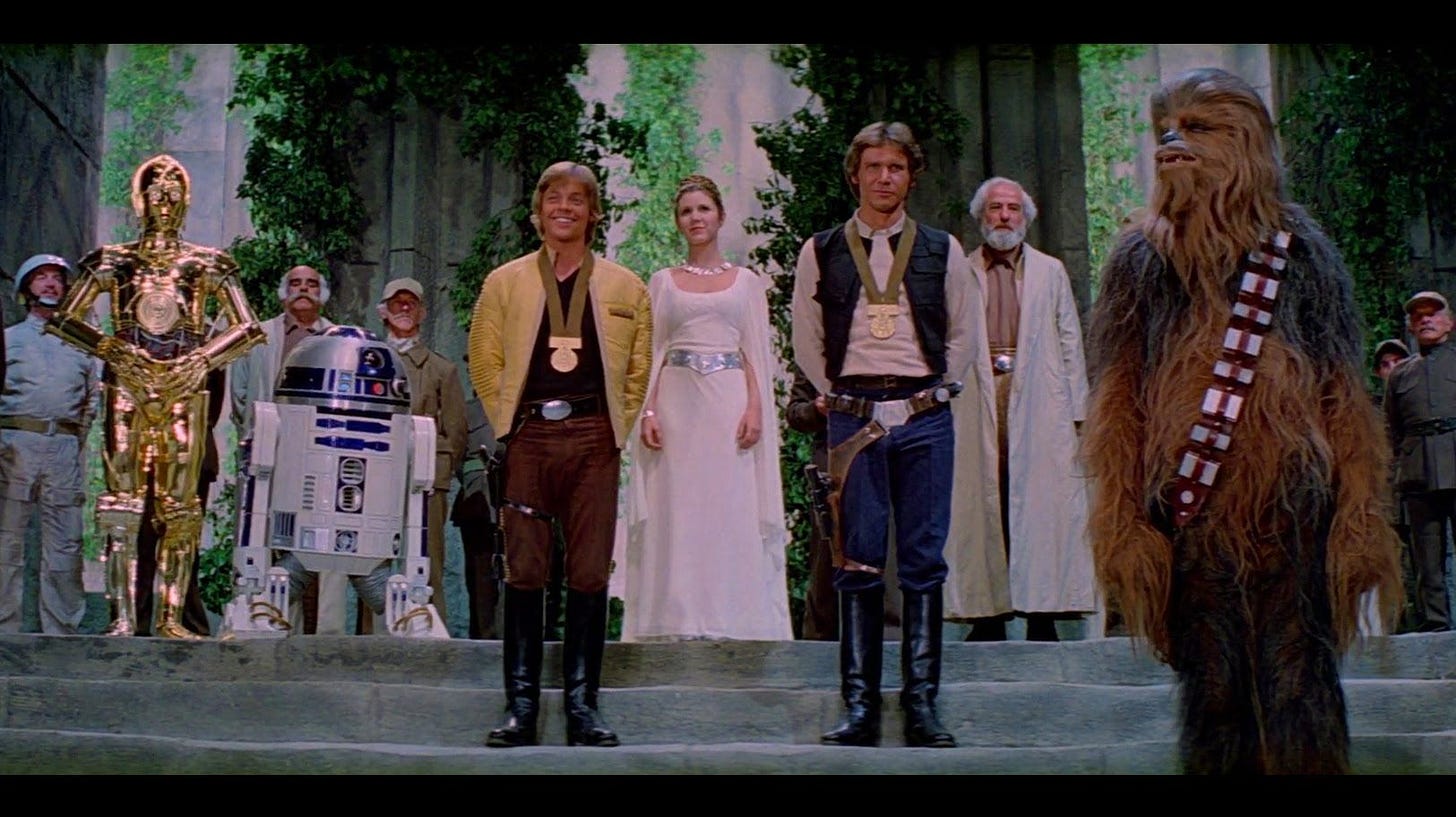
We take one question a week around these parts: Send yours to williamfleitch@yahoo.com. This one comes from Aaron Schmidt:
What franchise movie would be the best if made as a standalone movie? (Without all the franchise obligations regarding continuing a narrative/ sticking to a tone/etc.)
Aaron used the example of Rogue One, but I might go farther than back: Imagine if there would have just never been a sequel to the original Star Wars? That was George Lucas’ original plan, after all. No Darth Vader as Luke’s Dad. No Yoda. No Ewoks. I explored this in a Screencrush piece a few years back:
It’s not just the Star Wars universe that’s altered forever. Think about how much Star Wars changed the business of movies. Jaws is often credited with creating blockbuster culture, but if Jaws synthesized the formula, Star Wars weaponized it. How many little toy sharks did you have, as opposed to Princess Leia figures in 25 different outfits? The whole structure of how Hollywood made movies changed with the Star Wars sequels. Everything has to connect to what came before it, and what is coming next. The idea of a self-contained movie almost seems self-defeating in a Star Wars sequel world.
I wonder how we would talk about Star Wars today if it had never gotten a single sequel. I wonder how different the planet would look.
ONGOING LETTER-WRITING PROJECT!
I find it sort of moving to both send and receive letters during this time. So send 'em:
Will Leitch
P.O. Box 48
Athens GA 30603
CURRENTLY LISTENING TO
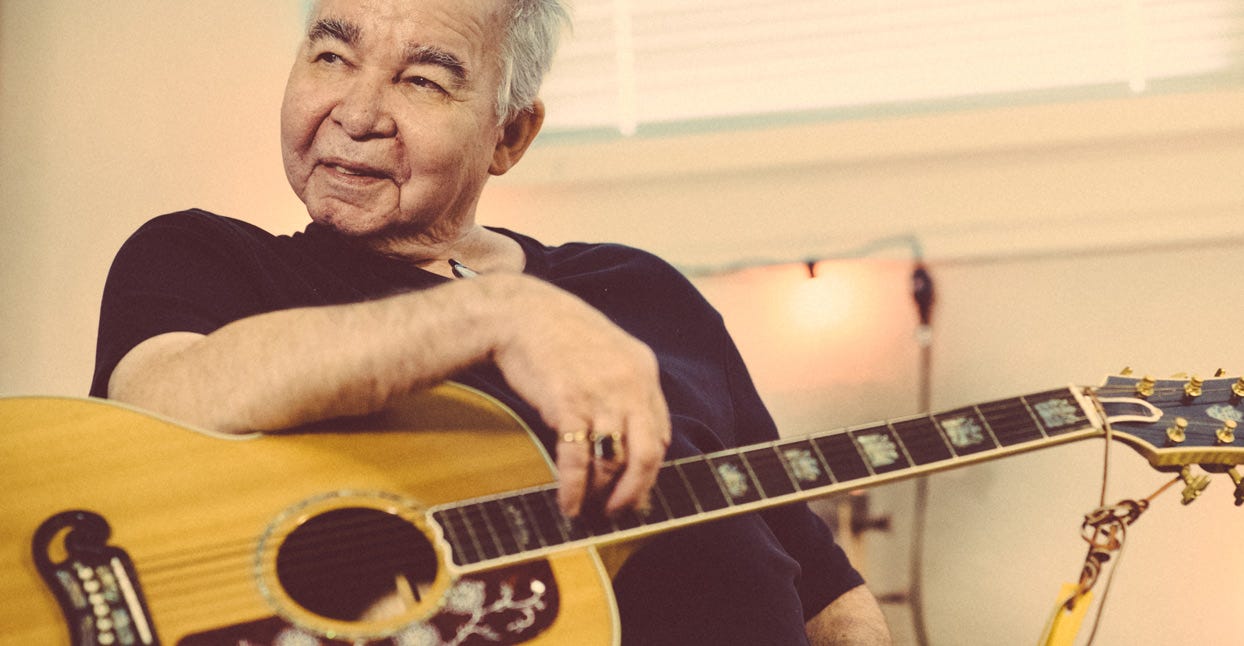
“Summer’s End,” John Prine.
Three great John Prine readers:
Roger Ebert’s original piece, after discovering him in a back Chicago bar. This is by all accounts the first piece written about him.
The Bitter Southerner’s interviews with musicians who worked with Prine and were heavily influenced by him.
Remember the newsletter a few months back about my father falling off the garage and how completely terrifying it was? Look what my mom caught him doing this weekend:
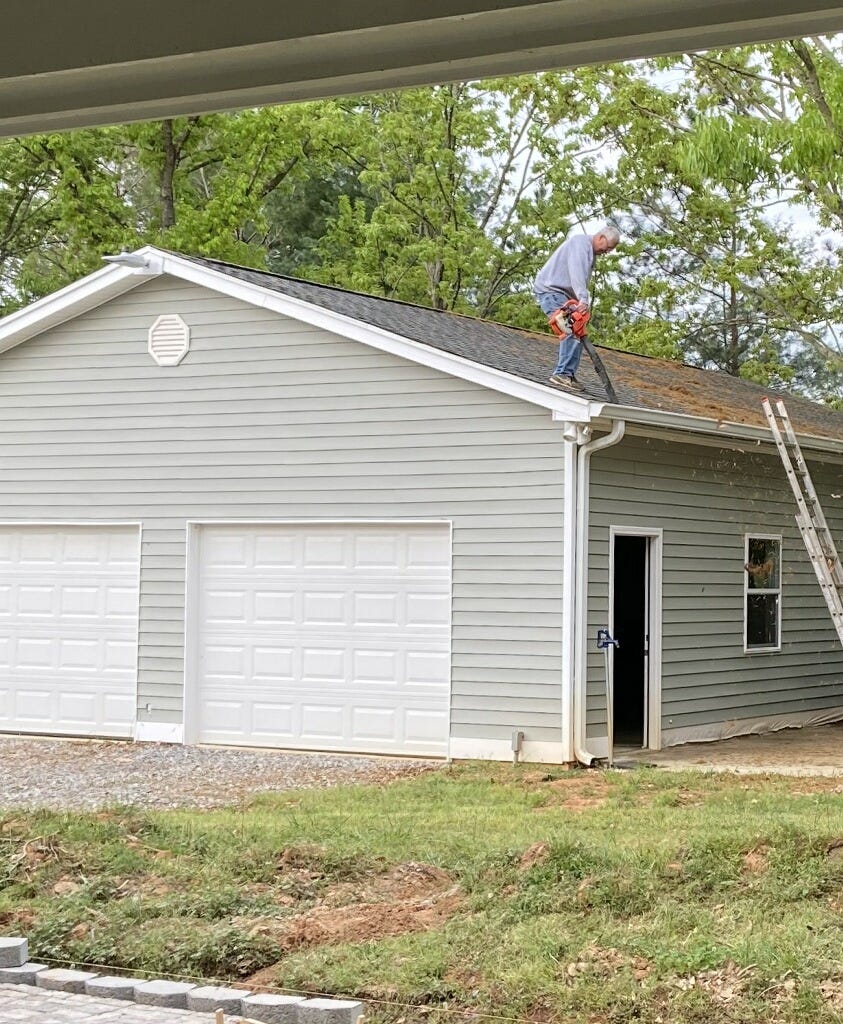
Parents never, ever listen.
Remember to send me your CV stories at williamfleitch@yahoo.com. They’ll run every Wednesday, and only every Wednesday, moving forward.
Have a great weekend, everyone. Please be safe out there.
Best,
Will

Back in the day when I read the Bachman books as as a collection I thought The walk would make a great movie. Slow building the story as the dead piled up and the end was awesome, also the running man as written was so much better than the movie.
I'm not usually one for doofy Facebook memes but this one has been open in a tab on my browser for the last 3 days as a reminder: https://i.redd.it/bpp32v0ztxn41.jpg